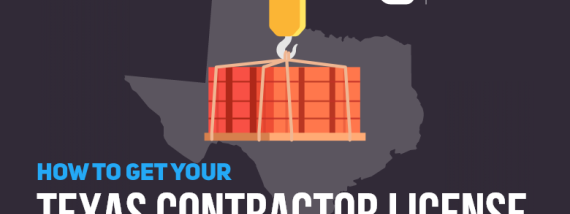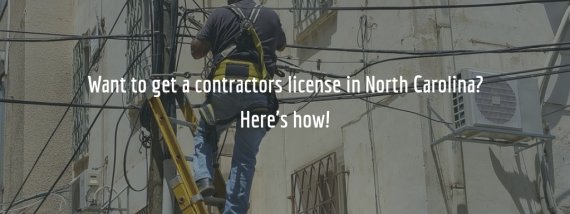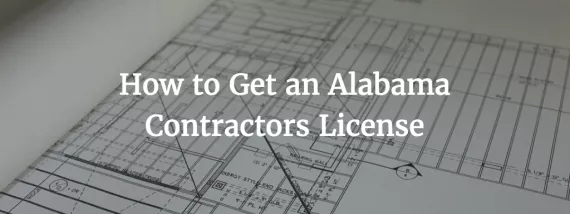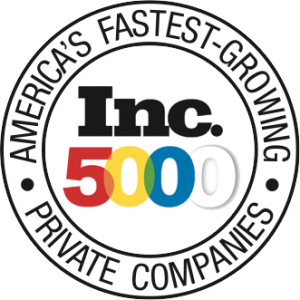How to Become a Mortgage Broker
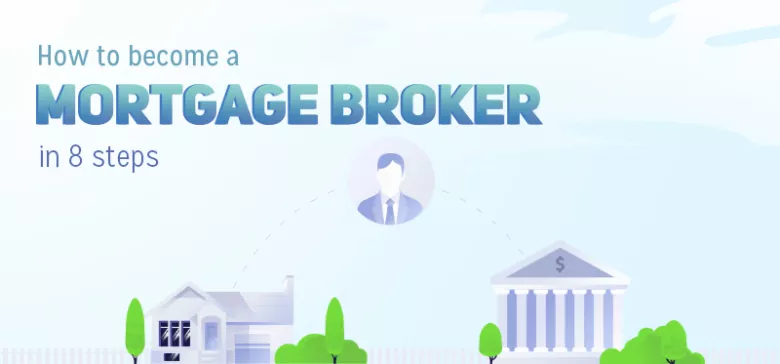
Are you planning a career as a mortgage broker or loan officer, but don’t know where to start? The process might be daunting, but when you’re supported by the proper guidance and preparation, it is possible to get your mortgage broker business up and running without stress or difficulty.
There are a number of criteria which you must meet before you can become a mortgage broker, set by your state authorities, and mediated by the Nationwide Multistate Licensing System and Registry (NMLS).
From understanding the role, to undertaking your education, proving your ability to gaining your license and establishing your business, we’ll guide you here through each step of the journey, and get you started on your dream career with confidence and ease.
What is a Mortgage Broker?
Mortgage brokers play a vital role in the real estate industry. In simple terms, they help buyers to purchase homes or corporate buildings by connecting those buyers to the most suitable options for funding. This makes mortgage brokering a vital profession; facilitating the economy, supporting the housing market, and helping people to find their dream homes.
Mortgage brokerage also offers significant opportunities for professional development and financial success. Mortgage brokers typically charge a commission between 1% and 2% of the mortgage price, which might be paid by mortgage lenders or clients. Considering the typical value of mortgages, skilled brokers can earn a 6-digit income annually.
What Does a Mortgage Broker Do?
Mortgage brokers serve as the connecting point between buyers and lending institutions. This makes them essential players in the real estate industry processes.
Homebuyers and commercial clients seek brokers’ help to access the best loan options available on the market. Whilst it is possible for individuals to search for these loan options themselves, the scale of the loan market makes this job best suited to a specialist.
Therefore, the primary role of mortgage brokers is to stay informed and up to date loan products, and to maintain relationships with those that supply them. That means that mortgage brokers continually need to conduct research and need to keep networking in order to provide their clients with access to the best mortgages and mortgage rates.
Step-By-Step Guide to Becoming a Mortgage Broker or Mortgage Loan Officer
There are a number of criteria which you must meet before you can become a mortgage broker, set by your state authorities, and mediated by the Nationwide Multistate Licensing System and Registry (NMLS). These licensing requirements are explained below.
Undergo the Pre-Licensing Mortgage Broker Training
The first step on the path to becoming a mortgage broker is to ensure that you meet the educational requirements which are set for mortgage brokers.
The first requirement is that you must have, at least, a High School Diploma, or equivalent GED certification.
The second requirement is that you must undertake a mandatory training course. The training course consists of 20 hours of pre-licensure education, including
- 3 hours of federal law
- 3 hours of ethics
- 2 hours of Non-traditional mortgage lending
- 12 hours of electives
These courses are available from several recommended schools for mortgage brokers, which also offer additional education for aspiring brokers who wish to expand their knowledge further.
There are several other ways in which you can bolster your education when becoming a mortgage broker. Though it is not essential, many mortgage brokers are given a competitive advantage by a degree in economics, business, or finance.
The National Association of Mortgage Brokers offers additional courses, which allow students to become certified as Certified Residential Mortgage Specialists, Certified Mortgage Consultants, or Advanced Mortgage Consultants.
It is also recommended that aspiring brokers gain three to five years of experience at an established mortgage company before starting their own independent business. This work environment offers the perfect opportunity for brokers to gather first-hand knowledge and the experience needed to succeed independently. It also offers the perfect opportunity to develop a professional network of lenders and buyers, which is essential for a broker at any stage of their career.
Pass the SAFE Mortgage Loan Originator Test
Once you have completed your pre-licensing education, the next step for aspiring brokers is to pass the SAFE Mortgage Loan Originator (MLO) Test. This has been obligatory since 2008.
In order to take the test, you must first register with NMLS, and make an appointment to take your test, which costs $110.
The test required for most applicants is the National Test with Uniform State Content. However, some state agencies have not yet adopted this test, and will also require their brokers to sit an additional State Test Component, which covers state-specific practices and regulations. This costs $69.
For each component, applicants must score about 75% in order to pass. Your score will be made available to you within 72 hours of completion. If you score below 75%, you will have to retake your test.
See the Mortgage Loan Originator Testing Handbook if you need help preparing.
Register Your Company and Business Name
Once you have met the minimum education requirements and passed your test, you may formally register your mortgage brokerage as a business entity. This is also an essential stage in your license application.
There are several different entity types from which you can choose depending on the type of business you wish to establish. This choice is dependent on the number of owners you wish to include, and your specific business plan. Depending on these factors, you may choose to become a Sole Proprietor, or create a Partnership, a Limited Liability Company, or a Corporation.
In order to register, you may need to file an application with the Secretary of State and get a tax ID number from your local Department of Revenue. If you wish to hire employees, you will also have to apply to the Internal Revenue Service (IRS) for an Employer Identification Number.
Meet the Mortgage Broker License Requirements
With education complete and verified, and with the creation of a formally registered business entity, you ought to begin gathering the necessary documentation to complete your licensing application.
There are common requirements that all brokers are required to fulfill,
- Demonstrating your pre-licensing education
- Evidence of a completed SAFE test
- Providing fingerprints for an FBI criminal background check
- Authorizing a Credit Report via the NMLS system
- Submitting your financial statement.
However, the exact requirements made of brokers vary state by state. The NMLS interactive map on the NMLS website can help you to identify your exact requirements based on the state you live in.
It is important that you clarify the requirements for your particular state, as if you do not meet these requirements, you cannot be granted a license.
For example, most states require mortgage brokers to post a surety bond. There can be lots of variety in the value and cost of surety bonds, so you should clarify which bond is required early to ensure that you and the borrowers with whom you are working have the correct protection.
Once you have all of the correct documentation, you may complete your licensing application. This, along with all of the supporting evidence, should be submitted to the NMLS via their online platform.
The licensing fees vary from state to state. However, you can generally expect to pay between $1,000 and $2,000 dollars per year.
Obtain a Mortgage Broker Bond
This is a common requirement for mortgage brokers in most states. A mortgage broker bond is a useful tool which acts as a financial guarantee that mortgage brokers will act in accordance with state or government regulation, and offers financial security to clients in the event of malpractice on the part of the broker. As well as protection, they offer customers greater confidence throughout the loan process.
The exact value of the surety bond you must post is determined by the state in which you wish to operate, and can vary depending on the scale and type of business you wish to operate. For example, Texas Mortgage Brokers are required to post a bond worth $50,000, whilst in California, the required bond amount is $20,000. You can find out the exact bond requirements of your state by consulting our mortgage broker bond’s map.
The price that you are required to pay for your surety bond, known as the surety premium is also susceptible to variation. This variation is most typically affected by your personal and business credit.
If your financial profile is strong, with a FICO credit score at 675 or above, you can expect a bond premium within the range of 0.75% and 3%. This means that for a bond worth $50,000, your premium may cost between $375 and $1,500. However, for applicants with worse credit, or a FICO score below 599, rates are frequently between 5% and 10% of the overall bond price. That means paying between $2,500 and $5,000.
If you are concerned about applying for a mortgage broker’s bond with bad credit, or you want a more precise quote now, you can fill out the form below, or follow our link for a free quote.
Develop a Network of Lenders and Buyers
You must continually develop your professional connections. This is an essential element of how to become a mortgage broker.
First and foremost, you need to create relationships with lending institutions, as well as with real estate agents. You can attend housing or mortgage industry events and seek contacts at key loan providers to enrich your portfolio. This is also a valuable use of your time working as a mortgage broker in an established company prior to working independently.
By developing and maintaining these connections, you will be able to present your clients with a wider range of home loan products and may be able to secure competitive rates for them. Access to a wide range of products at a wide range of prices will make you an attractive broker for your clients, so it is always worth being familiar with what is available in your area. Word of mouth is one of the most powerful marketing tools, so working hard to build strong relationships and gain referrals can pay dividends.
Choose a Software Solution for Your Brokerage
For your successful day-to-day operation, you will also need to use a solid mortgage brokering software solution. It can make your processes much easier and smoother. Software programs help you organize and execute your customer communication and connect you with other mortgage professionals and can provide you with access to lending institutions’ programs as well.
Some applications assist your marketing efforts and customer support. They also give you a detailed overview of your activities through in-depth analytics. As with any tool, the right software can make your work significantly easier, and the wrong tool can make your work significantly harder. Taking the time to consider the options before you begin your business, and ensuring that you have exactly the software most suited to your needs, you can save yourself valuable time, effort and energy further down the line.
Take a Continuing Education Course
Every time you renew your mortgage broker license, you must take yearly continuing education courses. These courses are eight hours long and comprise components which match your initial training.
The required classes include three hours of federal law, two hours of ethics, two hours of non-traditional mortgage lending, and one elective hour. By completing them, you can stay up to date with legal and professional standards.
Whilst these eight hours of retraining are official requirements, it is sensible to continue learning on and developing your awareness of the industry on your own initiative. Doing so will give you a competitive advantage in the industry, as it will allow you to stay up to date with practices, techniques or any changes made to the industry in real time.
Start Your Mortgage Broker Business
Once you have collected or prepared everything detailed in this article, you will be ready to begin your journey as a mortgage broker. Whether you wish to work by yourself, or are hoping to establish a corporation, these guidelines should give you a firm head start.
If you have any further questions about the requirements for becoming a mortgage broker, or the process of posting a mortgage broker bond, don’t hesitate to get in touch. You can contact us via our chatbot, or over the phone at 877.514.5146
- Fast and Secure Application
- Nationwide Coverage
- Approval in Minutes
- Money Back Guarantee
Recommended Articles
- Fast and Secure Application
- Nationwide Coverage
- Approval in Minutes
- Money Back Guarantee
- Image

- Image

- Image

Lance Surety Bond Associates, Inc. is a surety bond agency based out of southeastern Pennsylvania that is able to write all surety bond types in all 50 states. We are dedicated to servicing all of our customers' surety bonding needs throughout the country and guarantee competitive rates, timely responses, and unparalleled customer service.



